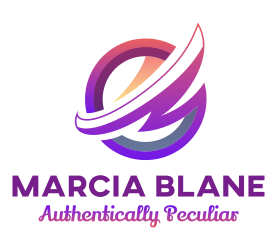Empowering Mental Wellness | The Eight Dimensions of Wellness
Because healing is holistic.
When we talk about mental health empowerment, we’re not just talking about managing symptoms, we’re talking about thriving.
True wellness reaches far beyond therapy sessions and medication. It’s about how we live, how we relate, how we care for our minds and bodies. It’s about reclaiming agency in a world that often demands we disconnect from ourselves just to function.
That’s where the Eight Dimensions of Wellness come in a powerful framework that reminds us healing is multi-dimensional. Mental wellness is emotional, yes, but it’s also spiritual, physical, financial, and everything in between.
Let’s explore each dimension, and how they work together to support your mental well-being.
1. Emotional Wellness: Feeling to Heal
This is the foundation of mental health. being able to name, express, and manage your emotions without shame.
Whether you’re navigating trauma, grief, anxiety, or burnout, your ability to feel deeply and cope effectively is a vital part of empowerment.
Reminder: Emotional strength isn’t about not crying. It’s about knowing how to come home to yourself when you do.
2. Physical Wellness: Your Body Holds the Story
Our mental and physical health are deeply intertwined.
Sleep, nutrition, hydration, movement, and rest are not luxuries, they're mental health tools. When your body feels safe and cared for, your mind has a better chance of regulating, recovering, and thriving.
Your body is not separate from your healing, it’s the home for it.
3. Spiritual Wellness: Anchored in Purpose
You don’t need to be religious to be spiritually well.
Whether it’s through prayer, meditation, connecting with nature, or simply sitting in silence, spiritual wellness grounds you in something bigger. It reconnects you to hope, meaning, and purpose, especially when life feels like too much.
Spiritual grounding helps us stay centered when the world feels shaky.
4. Social Wellness: Healing in Connection
We are wired for connection, not isolation.
Supportive relationships, those where you can be seen, heard, and held, can be deeply healing. Whether it’s a chosen family, community circle, or trusted friend, safe relationships help regulate our nervous systems.
You don’t have to do this alone. Healing is a shared experience.
5. Intellectual Wellness: Feeding the Mind
Your brain deserves stimulation, creativity, and curiosity.
Learning something new, exploring a hobby, reading, or expressing yourself through art can support your cognitive wellness and emotional resilience. Mental health isn’t just emotional, it’s intellectual, too.
Curiosity keeps the mind flexible, and a flexible mind is a powerful tool for healing.
6. Environmental Wellness: The Space Around You Matters
Your surroundings affect your mood, nervous system, and sense of safety.
Cluttered or chaotic environments can trigger stress responses, while calm, clean, and affirming spaces can support regulation and recovery.
Ask yourself: Does my space support or deplete my peace?
7. Occupational Wellness: Aligning Work and Well-Being
Work shouldn’t cost you your mental health.
Whether you’re employed, caregiving, creating, or job-seeking, your relationship with work matters. When your values align with your tasks,or when you set boundaries within your professional life, you protect your energy and your worth.
Burnout isn’t a badge of honor. It’s a sign to realign.
8. Financial Wellness: Peace in Provision
Let’s be real, financial stress can take a toll on mental health.
Financial wellness isn’t about being wealthy, it’s about stability, clarity, and having a plan. Budgeting, saving, asking for help, and understanding your financial story are all steps toward empowerment.
Empowerment includes knowing your worth and planning for peace.
Why This Framework Matters
Mental wellness is not one-dimensional, so our healing shouldn’t be either.
When we look beyond just coping and begin to build a life that supports wholeness in all areas, we reclaim power over our healing journey.
This is how we move from surviving to living. From fragmentation to integration.
Ask yourself:
What’s one small shift I can make this week in one of these dimensions to support my mental well-being?
Start small. Be gentle. Stay connected.
Written by Marcia Blane, LPC, NCC, C.Ht.
Licensed Mental Health Counselor | Trauma-Informed Life Coach | Clinical Hypnotherapist
www.marciablane.com

